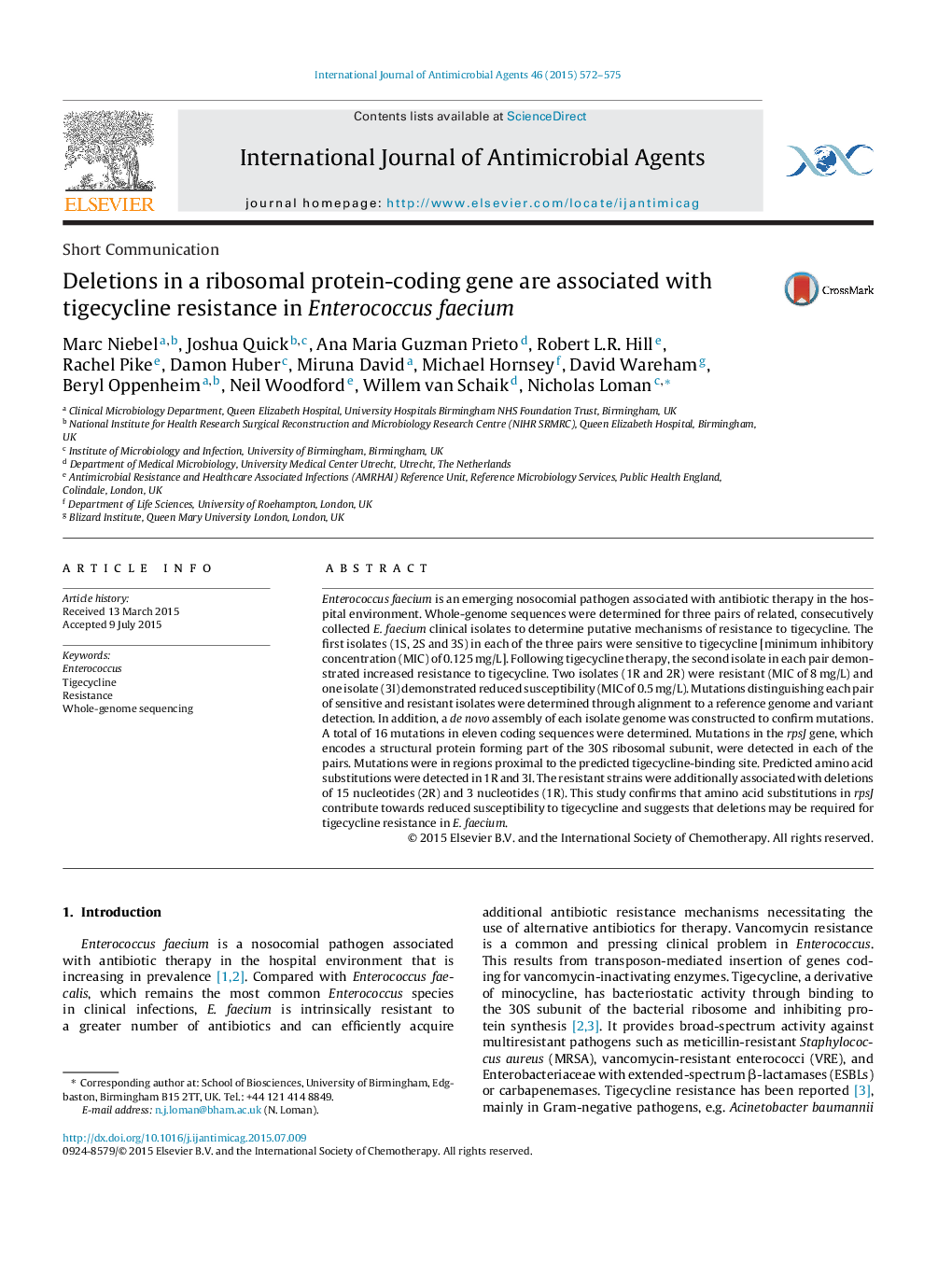| کد مقاله | کد نشریه | سال انتشار | مقاله انگلیسی | نسخه تمام متن |
|---|---|---|---|---|
| 3358653 | 1591760 | 2015 | 4 صفحه PDF | دانلود رایگان |

• Whole-genome sequencing permits de novo detection of antibiotic resistance in Enterococcus faecium.
• Reduced susceptibility to tigecycline is associated with substitutions in rpsJ.
• Resistance to tigecycline is associated with deletions in rpsJ.
• Protein modelling indicates that these deletions distort the tigecycline-binding site.
Enterococcus faecium is an emerging nosocomial pathogen associated with antibiotic therapy in the hospital environment. Whole-genome sequences were determined for three pairs of related, consecutively collected E. faecium clinical isolates to determine putative mechanisms of resistance to tigecycline. The first isolates (1S, 2S and 3S) in each of the three pairs were sensitive to tigecycline [minimum inhibitory concentration (MIC) of 0.125 mg/L]. Following tigecycline therapy, the second isolate in each pair demonstrated increased resistance to tigecycline. Two isolates (1R and 2R) were resistant (MIC of 8 mg/L) and one isolate (3I) demonstrated reduced susceptibility (MIC of 0.5 mg/L). Mutations distinguishing each pair of sensitive and resistant isolates were determined through alignment to a reference genome and variant detection. In addition, a de novo assembly of each isolate genome was constructed to confirm mutations. A total of 16 mutations in eleven coding sequences were determined. Mutations in the rpsJ gene, which encodes a structural protein forming part of the 30S ribosomal subunit, were detected in each of the pairs. Mutations were in regions proximal to the predicted tigecycline-binding site. Predicted amino acid substitutions were detected in 1R and 3I. The resistant strains were additionally associated with deletions of 15 nucleotides (2R) and 3 nucleotides (1R). This study confirms that amino acid substitutions in rpsJ contribute towards reduced susceptibility to tigecycline and suggests that deletions may be required for tigecycline resistance in E. faecium.
Journal: International Journal of Antimicrobial Agents - Volume 46, Issue 5, November 2015, Pages 572–575